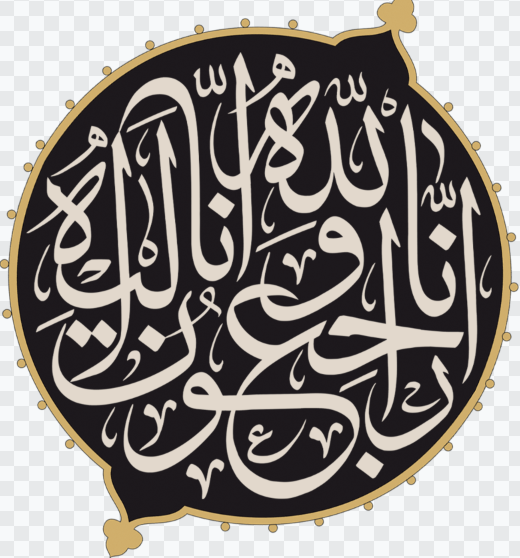بِسۡمِ اللهِ الرَّحۡمٰنِ الرَّحِيۡمِ
- The Muslim family expects the body of the deceased to be handled in a dignified manner and as gently as possible, because the sanctity of the dead person is considered to be the same as of the living. Therefore, Islām forbids cremation and, furthermore, prohibits walking or sitting on a grave. Once the patient has died the body of the deceased should be treated with the utmost respect and gentleness. Close relatives and carers should be invited to share in the care of the deceased.
- The deceased must remain fully clothed and only be handled with gloves preferably by person(s) of the same gender where this can be arranged.

- Soon after death the following should be done with the help of family members, where possible:
- The eyes of the deceased should be closed.
- All the limbs should be straightened, so the arms are by the side, parallel to the body and the legs closed. The fingers should be straightened.
- The mouth should be carefully closed by placing a bandage or strip of cloth around the lower jaw and tied at the top of the head.
- The ankles should be gently fastened together with a bandage to keep the legs together.
- All lines, devices, and medical equipment should be dealt with as per the hospital policy.
- Any incisions and wounds should be plugged so as to stem the flow of blood.
- Any excess or obvious dirt should be removed or washed.
- All hygienic care in line with the maintenance of the person’s dignity should be carried out as per the hospital policy.
- The patients’ facial hair should not be shaved.
- The patient should be wrapped in a clean sheet and transported to the mortuary.
- Occasionally, the family of the deceased may request to remain with the body. Such a request, where possible, should be treated favourably.
- The body should remain in the mortuary fully covered until it is released to the relatives.
- Muslims perform the funeral prayers and bury their dead as soon as possible after death. It is, therefore, important to assist in the issuance of a medical certificate of cause of death at the earliest possible opportunity to avoid unnecessary family distress so that early arrangements can be made for funeral prayers and burial. Staff are encouraged to do what they can to facilitate such wishes but this must not be at the expense of their legal duties requirements, and must not be to the detriment of the hospital/ NHS Trust as a whole, or to other service users who are equally entitled to an efficient service.
- Muslims deceased are normally always buried and never cremated.
A. Hussain
